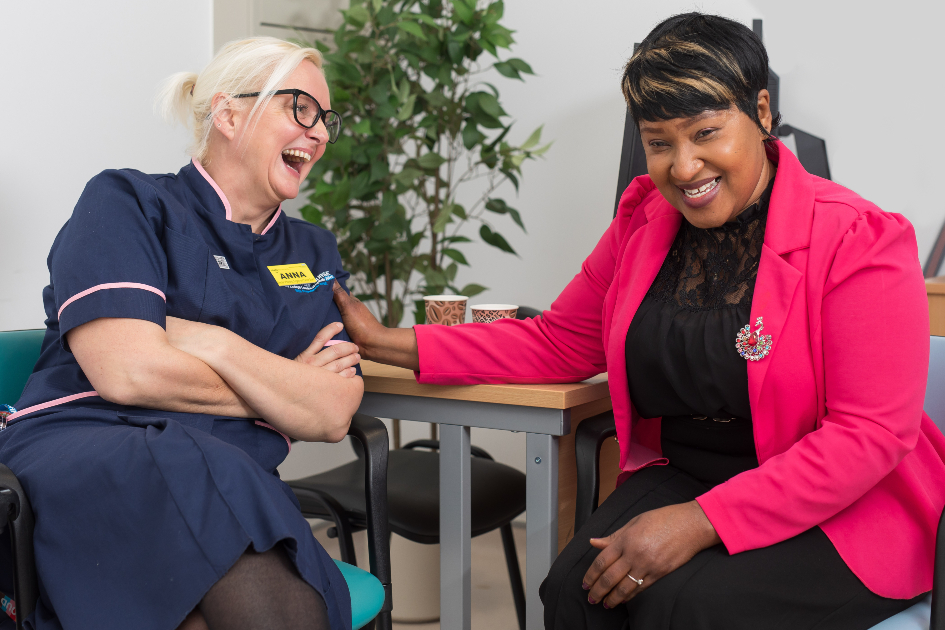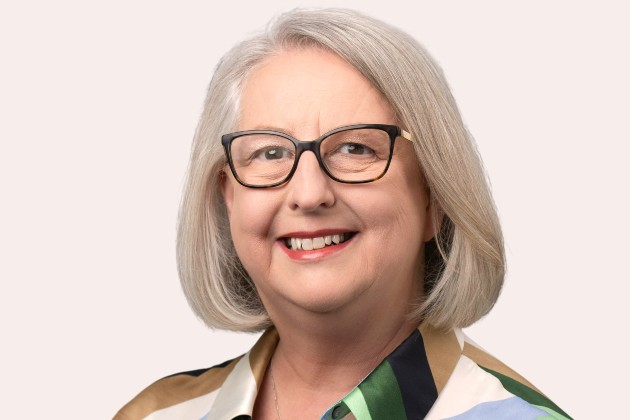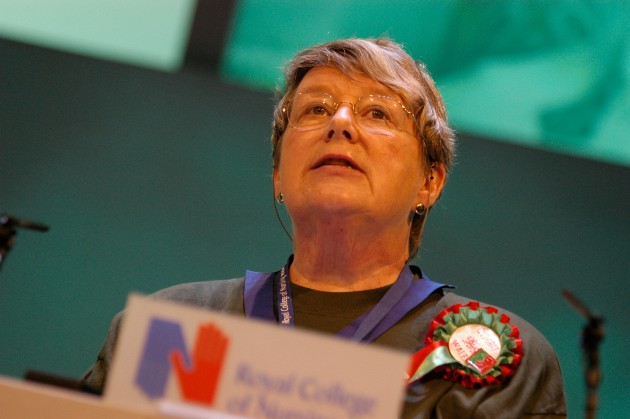Registered mental health nurse Kelly Forbes uses modern communication technologies to support her clinical work and reach new audiences. One of her key messages to all women experiencing hormonal changes is to protect their wellbeing. By doing this, as they get older, they can move from perimenopause to a new positive chapter in their lives.
“I see many women in their forties and early fifties who are struggling, and I don’t think this is a coincidence," says Kelly. “These are key years of transition when perimenopause and menopause symptoms are at their strongest for women who experience them.”
There’s lots of help available, including from mental health nursing staff, general practice nurses and menopause specialists, and Kelly is someone who’s leading the way. She’s determined to help people understand the impact that perimenopause and menopause has on the brain and a person’s wellbeing. This still isn’t talked about enough, she believes.
“Menopause isn't a mental illness, but it can have a negative impact on mental health and can exacerbate mental health conditions. Women need to be informed and knowledgeable about what’s happening to their bodies, because the impact on their personal wellbeing can be significant.
“People tell me: ‘It’s a natural change.’ I reply: ‘So’s a tsunami,’” she adds.
‘I’m leaving’
Changes to how someone feels during their perimenopause can make an individual experience life-changing shame, and this is often misunderstood, Kelly says.
“Research has shown that many women going through their perimenopause and menopause journey have a feeling of ‘I'm leaving with a suitcase and I'm not sure if I'm coming back’. I’m speaking metaphorically of course, but some women who are that age will know what I'm talking about. This needs to be spoken about and normalised.”
Menopause is a time of transition and often symptoms are experienced at a time when demands on women are increasing. They may be juggling carer responsibilities, senior roles at work or relationship changes, for example, so the impact of symptoms can interfere with their day-to-day activities and quality of life.
Kelly says she frequently sees women revisiting unresolved issues that happened in their earlier life as they enter perimenopause. This is the time they may reach out for therapy for unresolved issues.
Women also report feeling less feminine, less beautiful and less sexual, and perceive their worth has decreased. This can have a negative impact and stop women asking for help, clarifying needs, sharing experiences and receiving health care.
Their feelings are often hidden, and attitudes aren’t challenged.

A personality change?
Meanwhile, women are dealing with other hormonal fluctuations which frequently result in low mood and an increase in stress and anxiety.
Kelly explains: “This can feel catastrophic. Women report believing they’re not as connected to people, and they lack empathy. They wonder if they’ve had a personality change or if they’ve suddenly changed their life values.
“This really isn’t the case. There are clear biological and physiological changes happening. People need to know this so they can feel less guilty and instead focus on their own wellbeing.”
A future to look forward to
While menopause can often be portrayed in a negative way in western culture, with a stigma around a woman’s experience, some cultures celebrate menopause as an achievement of wisdom and ageing.
Kelly’s message is that we must all switch our focus.
“While life satisfaction may dip for some women as they come towards and during perimenopause, after menopause things are far more positive. Many women around the age of 60 tell me they've never been happier; and this is backed up by neuroscience.”
In her book, The Menopause Brain, Neuroscientist Dr Lisa Mosconi focuses on how the menopause doesn't just have an impact on the ovaries, there’s also a significant impact on the brain. She argues that by taking care of themselves during perimenopause, women can come out the other side with a renewed, enhanced brain and this can usher in a meaningful and vibrant new chapter of life.
Kelly agrees: “I explain it as an update for the brain, which also happens during puberty and pregnancy. Each wiring can be quite messy, but when you get to the other side, if you’ve focused on your wellbeing during the difficult times, you’re rewarded with wisdom.
“After menopause some women report feeling not as bothered by things that might have worried them in their younger years. Areas of the brain that are linked to empathy become increasingly powerful again.”
This is another transition. Some women are also kicking out years of horrendous physical issues like PMS, soreness, migraines or bleeding. Now they find there’s no more need for tampons, pads and “being prepared”. They’re also able to enjoy sex without thinking about pregnancy.
“This new stage in life – postmenopause – is a time that’s more about the individual and their personal priorities. That’s a message that many women need to hear,” Kelly concludes.
RCN advice on living well and keeping healthy during perimenopause
Women should be encouraged to:
- keep a diary of the positives, and challenge the negative thoughts
- make time to laugh, as humour can help with tension, stimulate immune systems, help with coping, and enhance memory, learning and help women to feel connected
- use the support of others who have been through similar experiences, such as women in a support group or menopause café
- challenge any negative way women are treated in society and in the workplace
- access treatment and support for ongoing menopause symptoms from a menopause-trained health care professional.
Read more in Menopause: RCN guidance
Reaching new audiences
Kelly has taken a new approach to the way in which she spreads the word about mental health and wellbeing. With a busy and wide-ranging caseload, she’s found a way to ensure appointment time isn’t dominated by explanations rather than practical help.
Now, after a face-to face assessment, those working in her multidisciplinary team advise patients to look at Kelly's videos on YouTube before patients return for their next appointment. This gives people the chance to review information and practise in their own time before their next appointment.
“The films are easily accessible – you don’t need a password or an account to see them. You can also find them using a QR code which we’ve printed on the back of our appointment cards,” Kelly explains. “They can also be used independently or alongside our interventions."
Kelly hopes the videos will also be helpful to those who she doesn’t see.
“People are busy and there’s still a stigma attached to seeing a mental health nurse, so although the information shared in my films is already available elsewhere, it’s important that it’s available in one place and it’s evidence-based,” she says.
The most popular films address women’s mental health issues but all Kelly’s videos use simple language to aid understanding and cover issues that matter to her local community. This includes grounding techniques, the panic cycle, guided breathing techniques, sleep hygiene and thought-challenging.
Feedback on Kelly's YouTube videos has been overwhelmingly positive, and there are plans to promote them to a wider audience across the trust area.
Further information
Find out more about the RCN Women's Health Forum.








